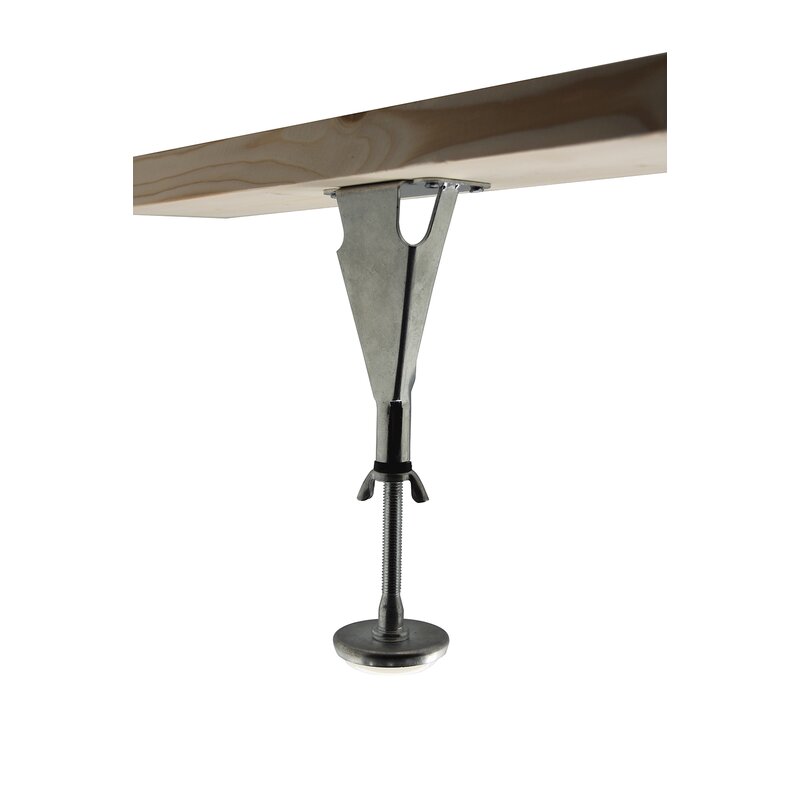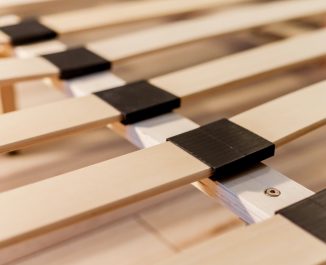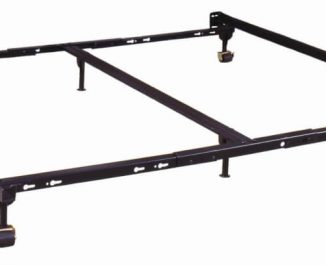Every purchase made online is encrypted with a high level of security you’ve come to expect. Your private information is never shared nor sold, so you can buy with confidence. You can also visit our store if you are in the St. Louis area.
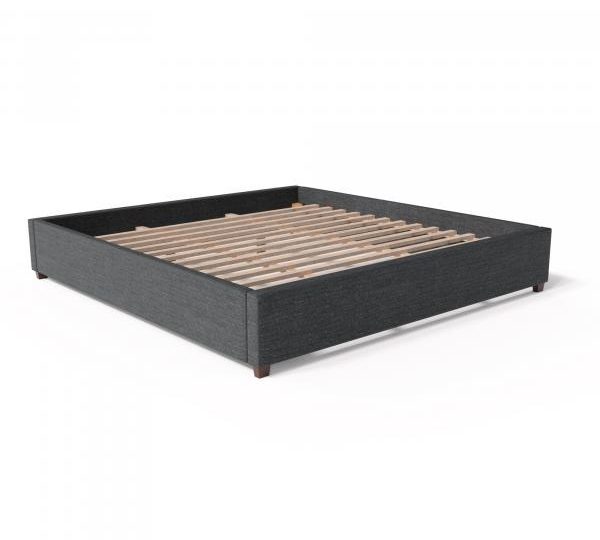
Estimated reading time: 8 minutes
Table of Contents
Table Of Contents
Broken Slat Support For Platform Bed. How To Fix It Correctly.
This should be as simple as asking for a new bed slat, but it is not. Have you heard the term muddying up the waters? The problems of platform beds are one such murky area of the bed or bed frame business that no one seems to be able to clearly describe or define. We will shine a light on the platform bed’s murky waters and hopefully assist with the confusing jargon concerning their replacement parts. These sleek beds are a relatively new idea that is a stylish and extremely popular part of today’s bedroom design. Today we help solve the problems.
What Is A Platform Bed?
In this article, we will be talking strictly about freestanding wood and upholstered platform bed designs. A platform bed is a combination standalone bed/bed frame. It consists of a rectangular framework with a flat platform for a mattress to rest upon and be supported. Some versions have drawers located at the end of the bed. No box spring or foundation is needed.
The addition of box springs would only raise the height of the mattress and in most cases block the aesthetics of the headboard design. Platform beds often utilize numerous narrow wood planks that act as a platform to support the mattress. These planks rest and fasten securely with wood screws onto a wooden lip. The lip is inside the long wood or upholstered-sided rails and runs the length of the side rail. The lip or ledge is ¾ to 1 inch wide. This strip is also where the wooden planks rest and are secured. Platform beds can also be constructed of a solid decking that plays the part of a floor to again support the mattress. Both surface designs can support a mattress and act as a solid built-in foundation.
Box springs are part of a set usually referred to as a box spring and mattress or a mattress and foundation. Hang on because this is where it gets confusing. For over 100 years this has been the acting floor to support a mattress when being used with traditional beds and bed frames. A box spring is a type of bed base that is often structurally rigid and can be placed directly on a bed or bed frame. While both a platform bed and a box spring are considered “bed bases”, a platform bed also plays the role of a bed frame.
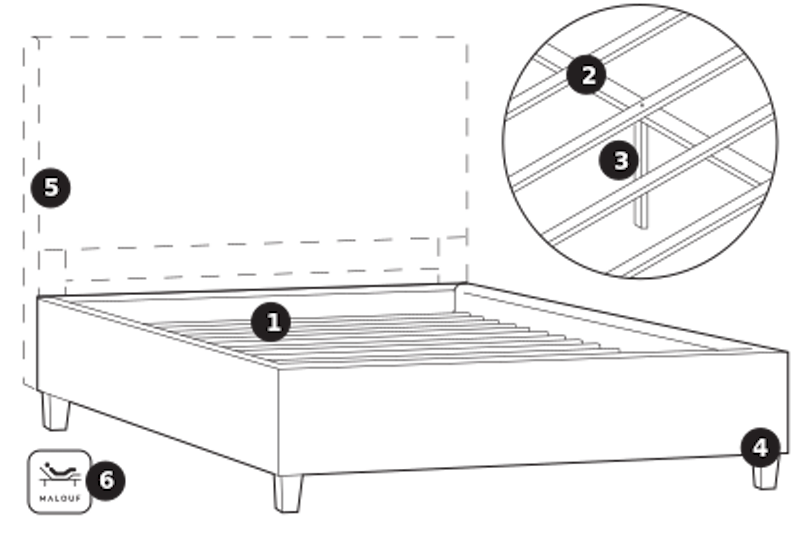
How To Fix Failing Slats On Platform Bed
Adjustable Height Center Support Leg for Bed Frame
Manufacturers know platforms beds are popular and are filling the wants and needs of the consumers by flooding the market with beautiful practical designs that are affordable. This is where the problem rears its ugly head. To be competitive these builders construct the beds using low-cost material and bare minimum support. This usually consists of a rectangular framework that supports 14 wooden planks of wood called slats. The slats may or may not be connected to one another using fabric strapping for easy install and equal spacing. Carrying the weight of the bed, in the middle, you will often find one of two support systems.
- Wood Peg Legs – The simplest and cheapest are the wood or metal peg legs. 1, perhaps 3 of these support legs are fastened to the bottom of the plank(s) like the piers on a bridge by one threaded bolt. Unlike piers on a bridge, they are not securely concreted into place and are usually very unsteady. They are notorious for loosening up over time and getting out of vertical position which causes failure.
- Head To Toe Wood Beam – This design that is slightly better using a long wood beam that runs the length or the bed (head to toe perpendicularly) to the wood slats. It too uses the same 3 peg leg design previously mentioned to shore up the bed’s middle. On a bridge we call this the girder, it is the main support of the structure and supports smaller beams. When you see how the makers build their platform bed girder, it is easy to understand why so many platform surfaces fail.
The Solutions To Failing Platform Bed
The cheap inexpensive way is replacement peg legs. Be prepared to replace them repeatedly over time. Structurally these are the weakest designs and are very unsteady. The taller the bed, the less stable the leg becomes. Adjustable Heights range from: 7.25″ H – 14″ H Some can even be as high as 18” In our opinion, these exceed the limits of what should be used for a safe stable supporting leg. While the design may be a cost-effective way to do the job, it is probably not the best for maintaining the life of your expensive bed frame and mattress.
Sure, you can put a mattress directly on wood slats if it is done properly. But if it is not, they are vulnerable to bowing, warping, and breaking. This is often the result of horseplay from kids and even adults jumping, wresting, and goofing off on an expensive trampoline. The best defense is a good offense. An ounce of prevention is worth a pound of cure and the best solution uses two head-to-toe steel beams under the critical areas of support. This will be the insurance that assures your mattress will not give out due to lack of support. With such support, your high-quality mattress will not sink as a result of a failing network of wood slats.
How Do I Keep My Bed Slats From Falling Down?
In-home construction we rely on the steel beam. Why? Because steel has a much greater weight-bearing strength than wood and other materials. Steel I-Beams also allow us to span greater distances. We can support the longer spans by using fewer piers/columns. So, why not apply this same construction to the length of our platform beds? It simply costs more to utilize steel and manufacturers attempt to get by with the most basic and least expensive solution they can find.
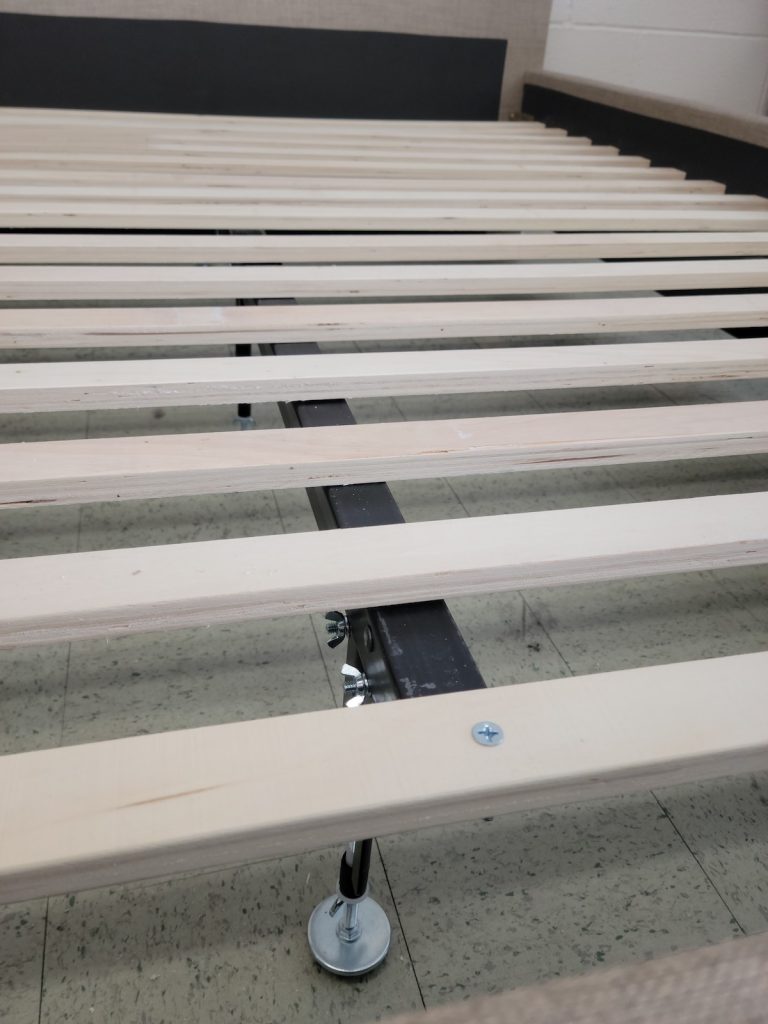
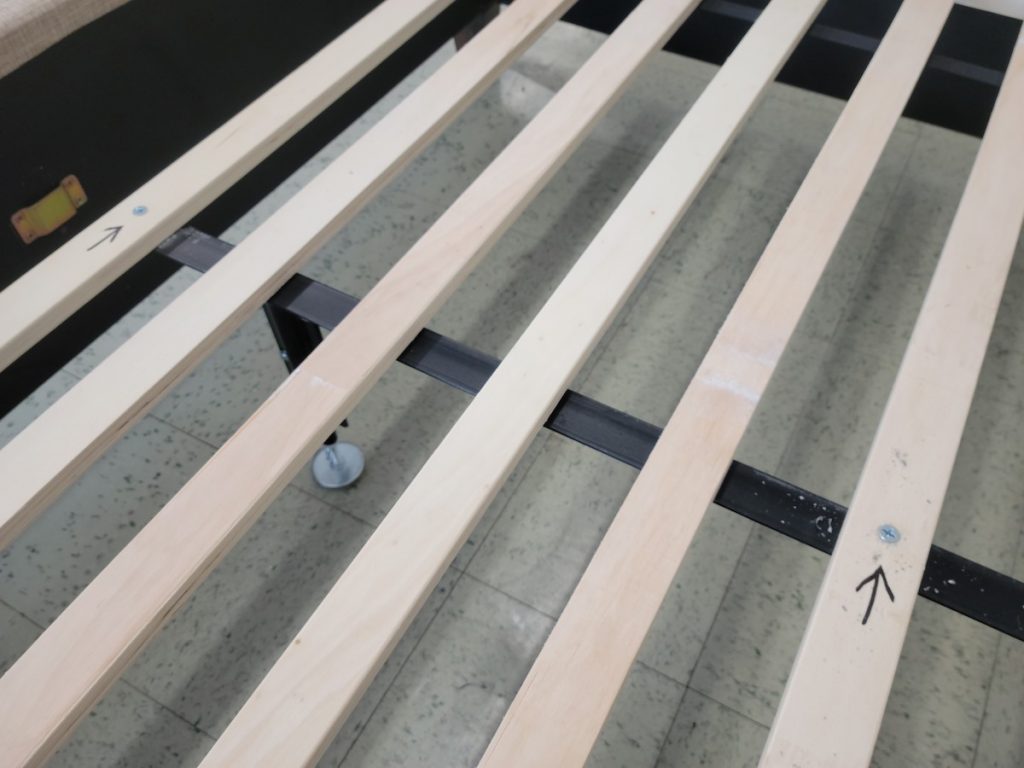
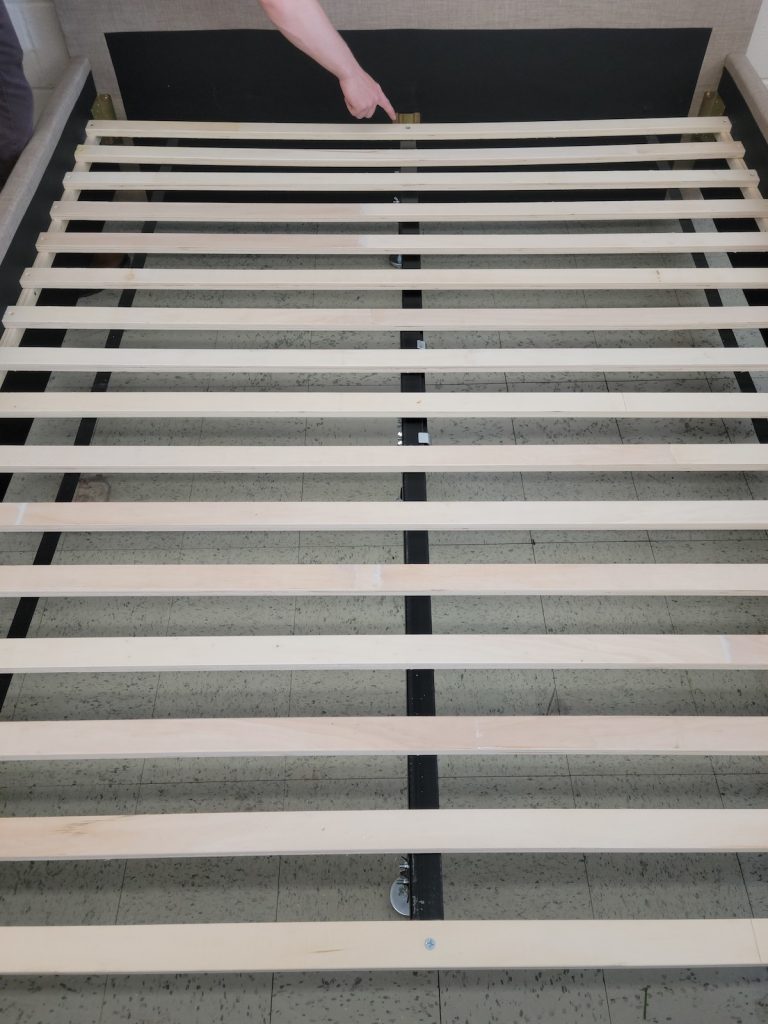
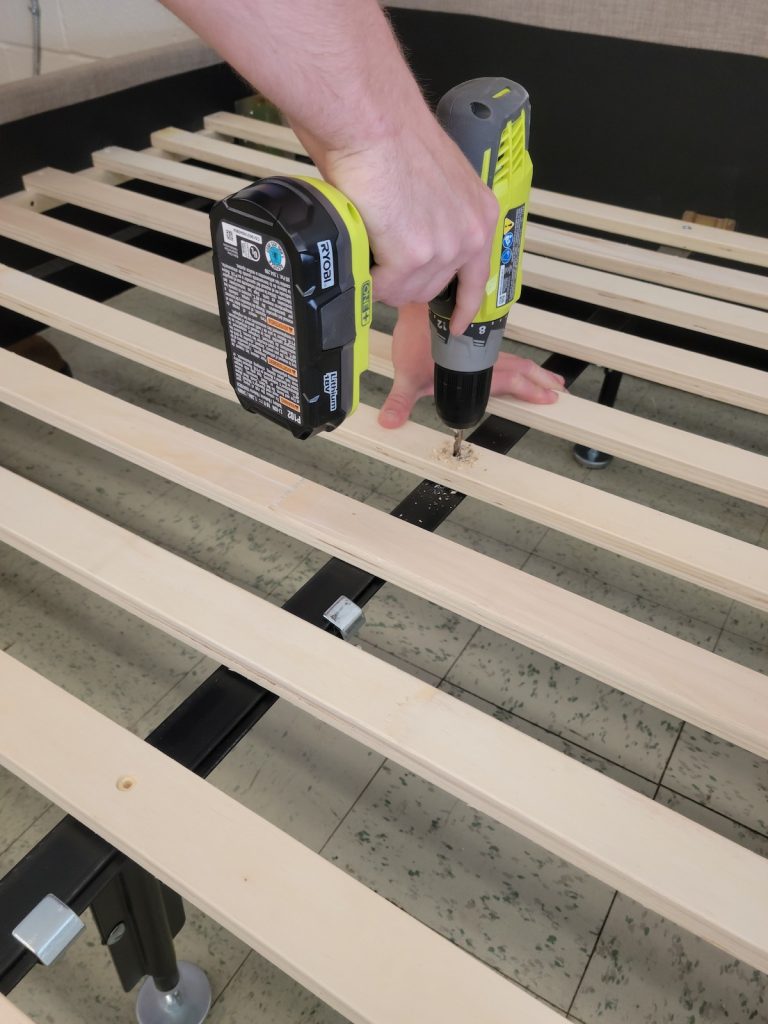
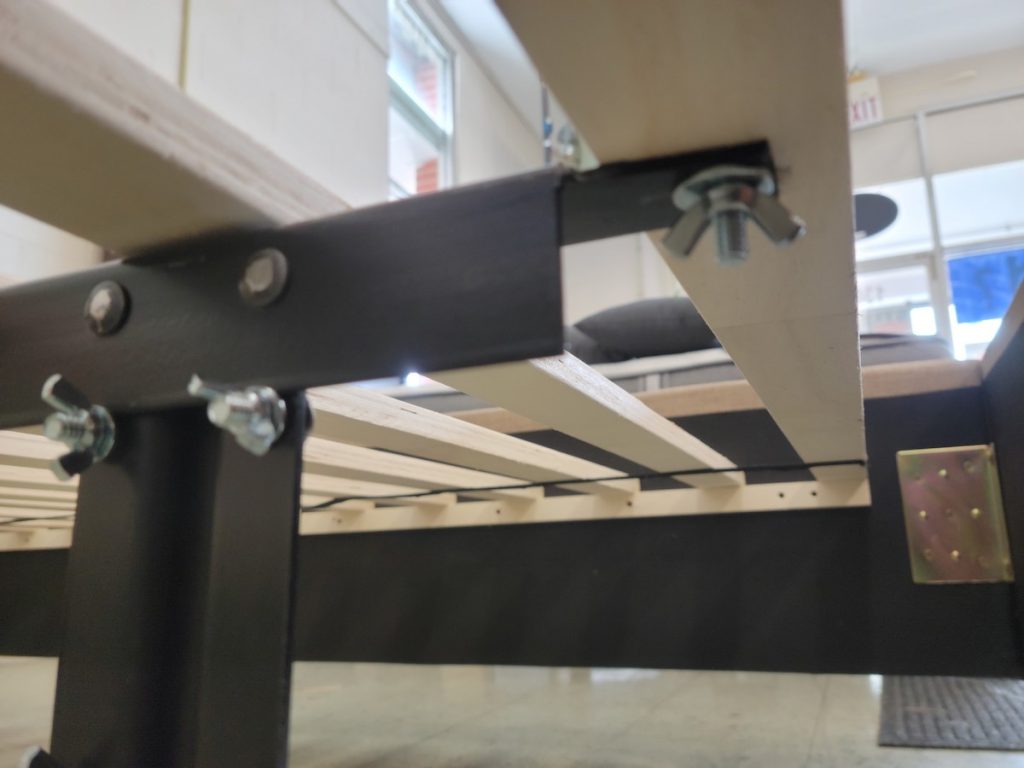
Steel Girder Beams Head To Toe
As the name suggests, it’s a steel beam. This beam is made from the angle iron, and it runs the length of your platform bed. The main beam is held up by supporting legs made from the very same steel. The legs are adjustable and fit a wide variety of being heights. How many steel girder beams will I need to use with my platform bed?
Our Recommendation On The Number Of Steel Beams In Relation To Bed Size
- Twin 1 Steel Beam
- Full 1-2 Steel Beams
- Queen 2 Steel Beams
- King 2 Steel Beams
- California King 2 Steel Beams
In traditional applications twin and full-size beds typically only support the weight of one person. Therefore, one beam is typically all that is required. In full-size beds where the bed will be used with two sleepers, a second beam is recommended. Especially when used by heavier people like adult couples.
Queen, king, and California King all use two beams for longitudinal reinforcement. The beam(s) should be running head to toe beneath wooden slats that are spanning the bed’s width. A beam should be placed where the main weight will need to be supported. If there are two sleepers there will need to be a bar under each for each sleeper. Each beam should have a minimum of two legs. We recommend 3 legs per beam.
Each beam or bar should be constructed of high carbon steel and measure 1 ½ by 1 ½ for maximum strength. The bar is securely bolted to the underside of the wood slats at each end and 2 additional points on the bar that are equally spaced apart.
It is important to note that we are not trying to reinvent the wheel here. Any area that has a large span of space that needs to be supported requires the support of a girder and then appropriately spaced piers. We have been doing this for thousands of years. Bridges and houses are the two easiest examples of this kind of support why not apply this proven tried and true method to your platform bed? Doing so will offer you years of added strength and reliability but also greater support and comfort for your huge investment of sleep. We hope this helps you with knowing you need platform bed girder supports.

